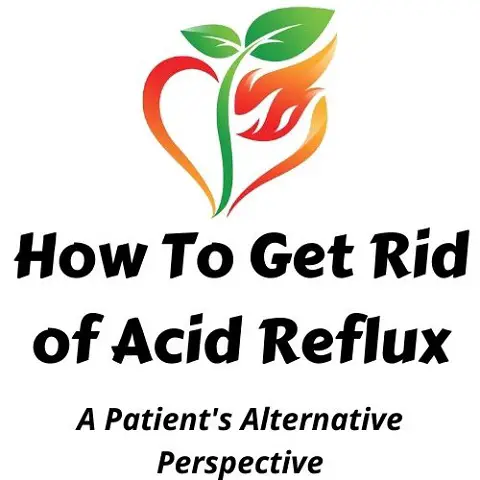Any links on this page that lead to products on Amazon and other companies may be affiliate links and we earn a commission if you make a qualifying purchase. Thanks in advance for your support!
I don’t know about you, but I’m not fond of cinnamon unless it’s combined with a nice iced bun. More importantly, however, I’ve often wondered how it affects my reflux – whether it makes it better, or worse.
It has been suggested that cinnamon may have anti-inflammatory properties that can help alleviate GERD symptoms. In this article, we will explore the potential benefits of cinnamon for GERD and whether it is a safe and effective treatment option or not.
Gastroesophageal reflux disease (GERD), acid reflux, or heartburn is a digestive problem that affects millions of people worldwide. It occurs when the stomach releases gastric acid back into the esophagus (food pipe) resulting in acid damage and irritation.
Cinnamon may provide some relief for GERD symptoms. Some studies suggest that cinnamon can help reduce inflammation in the gut, which may help ease symptoms. However, cinnamon can also increase stomach acid production and irritate the digestive tract in some people, potentially worsening GERD symptoms. Overall, the effect of cinnamon on GERD symptoms may vary from person to person.
If you have GERD and are considering using cinnamon as a natural remedy, it is best to start with small amounts and monitor your symptoms closely.
If cinnamon worsens your symptoms, it’s best to avoid it. It’s also a good idea to talk to your doctor before adding any new supplement or spicy foods to your diet to ensure it’s safe for you.
Common Symptoms of GERD
Common symptoms of acidity and even GERD include heartburn, chest pain, difficulty swallowing, regurgitation of food or sour liquid, dry cough, hoarseness, and/or bad breath.
Other less common symptoms include vomiting, sore throat, increased salivation, and/or a sour or bitter taste in the mouth.
What is Cinnamon?

Cinnamon is a spice derived from the inner bark of trees from the genus Cinnamomum. (photo credit daryl_mitchell Flickr).
Cinnamon has a strong, sweet, and warm aroma, and is used in both sweet and savory dishes, and to add flavor to a wide variety of foods. It is popularly used in baking, in curries, and as a spice to flavor coffee and tea.

Is Cinnamon Acidic?
Some people believe that GERD symptoms are worsened if acidic foods are consumed in quantity.
Cinnamon itself is neither acidic nor alkaline. Cinnamon in its raw form has a slightly acidic pH but it has been argued that when dissolved in water, it changes to alkaline.
It is important to note that the pH and chemical composition of cinnamon vary in a wide range depending on factors such as the type of cinnamon, its quality, and how it was processed.
If cinnamon is consumed in large amounts or used in high concentrations in topical applications, it may have an acidic effect on the body. This is because cinnamon contains certain compounds such as cinnamic acid and coumarin, which can have an acidic effect on the body when consumed or applied in large amounts.
Overall, though, cinnamon is not an acid or alkaline substance in itself. Its effect on the body and its pH levels will depend on factors such as the amount consumed or used, as well as individual differences in physiology.
How Cinnamon May Help GERD?
Cinnamon has a long history of use in traditional medicine and has been more recently studied for its potential benefits in managing a wide range of ailments, including gastrointestinal conditions. Although the research is not conclusive, here are some ways in which cinnamon may help GERD:
Reducing inflammation
GERD is associated with inflammation of the esophagus. Cinnamon has been found to have anti-inflammatory properties2 7 8, which may help reduce inflammation in the esophagus and alleviate acid reflux symptoms.
Improving digestion
Cinnamon has traditionally been used to aid digestion. It stimulates the secretion of digestive enzymes in poultry1, which may help break down food more efficiently and reduce the risk of acid reflux symptoms.
Regulating blood sugar
Diabetes is a common comorbidity of GERD. Emerging evidence5 suggests that Cinnamon has been found to improve insulin sensitivity and lower blood sugar levels in people with type 2 diabetes.
Killing harmful bacteria
Cinnamon has been found to have antimicrobial properties, which may help reduce the growth of harmful bacteria in the gut.
Some studies have suggested that GERD may be caused by an overgrowth of certain bacteria in the stomach, resulting in higher esophageal sphincter pressure, and gastric juices leaking into the food pipe as a result of this extra pressure. More on this can be read in our article “Candida and Acid Reflux : Is It Caused by This Bug?“
By reducing the bacterial load, cinnamon may help alleviate acid reflux symptoms.
Chewing Cinnamon Gum
Cinnamon chewing gum is available if you’re looking for a flavor kick, without the risk of larger quantities of the spice being consumed.
Whilst there is no evidence that this will not adversely affect your GERD, or cause reflux symptoms, chewing gum is a proven way of alleviating reflux symptoms by increasing saliva production and diluting any acid present in the esophagus. For more on this, check out our article here.
Possible risks of cinnamon for GERD
While cinnamon may have potential benefits for GERD, it’s important to note that it may also have some risks, and may be one of the food triggers that, in your case, initiates a reflux episode. Here are some things to consider:
Cinnamon may trigger heartburn
Some people with GERD may find that cinnamon actually worsens their symptoms and results in an upset stomach, as it can be a potent irritant to the stomach lining.
A study6 also found that cinnamon can delay gastric emptying, which, whilst beneficial for reducing blood sugar levels, may increase the possibilities of acid reflux.
Cinnamon can also increase stomach acid production, which may exacerbate acid reflux if the esophageal sphincter (the valve at the top of the stomach) is weak – which it is in any reflux sufferers.
It’s best to start with a small amount of cinnamon and monitor your symptoms carefully to see how your body responds.
Cinnamon supplements may interact with medications
If you’re taking medications for GERD or other conditions, be aware that cinnamon or supplements containing the spice may interact with them.
Cinnamon can lower blood sugar levels, so it may interact with diabetes medications or insulin.
Additionally, cinnamon may interact with blood-thinning medications like warfarin, as it has mild anticoagulant properties.
Cinnamon may cause allergic reactions
Some people may be allergic to cinnamon and may experience symptoms such as itching, swelling, and difficulty breathing. If you’re allergic to other spices or have a history of allergic reactions, it’s best to avoid cinnamon or consult with a healthcare professional before using it.
Cinnamon may be toxic if taken in excessive quantities
If Cinnamon is taken in excessive quantities or for long periods of time, one wide-ranging study3 found it is sometimes associated with side effects, most commonly gastrointestinal problems or allergic reactions.
Can Cinnamon Aggravate GERD?
Yes, cinnamon may aggravate symptoms of heartburn if you are a heartburn sufferer. It can potentially irritate the food pipe and cause reflux symptoms.
Additionally, cinnamon may be one of the triggers for heartburn as it can increase stomach acid, which can further worsen GERD symptoms.
There are anecdotal reports of cinnamon aggravating gerd.
However, it’s important to note that the effects of cinnamon on GERD can vary from person to person, and some people with occasional heartburn may be able to tolerate small amounts of cinnamon without experiencing any symptoms.
The only way to establish if cinnamon will make your symptoms worse, or give you an upset stomach is to experiment with small amounts. If you have GERD and are sensitive to cinnamon, it’s best to avoid it or limit your intake.
What Can I Substitute for Cinnamon With GERD?
If you have GERD (gastroesophageal reflux disease) and are looking for a substitute for cinnamon, there are several options that you can try. Here are some alternatives:
- Ginger: Ginger is a spice with anti-inflammatory properties that can help soothe the digestive system and deal with stomach cramps. It can be used fresh, dried, or in powdered form. Ginger can be added to tea, and smoothies, or used in cooking.
- Turmeric is a spice known for its anti-inflammatory effects, which may aid in reducing inflammation in the stomach. This ingredient has multiple uses, including being used in cooking, is a common ingredient in curry powder, added to smoothies, or used to make golden milk.
- Cardamom: Cardamom is a spice that has a similar flavor profile to cinnamon and can be used as a substitute in a wide variety of recipes. It can be used in baking, added to caffeine-free herbal tea, or used in cooking.
- Nutmeg: Nutmeg is a warm and aromatic spice that can be used as a substitute for cinnamon in baking or cooking. It can also be added to coffee or tea for a warm and cozy flavor.
- Allspice: Allspice is a spice that has a warm and slightly sweet flavor, similar to cinnamon. It can be used in baking, added to coffee or tea, or used in cooking.
It’s important to note that while these alternatives may be suitable for some people with GERD, it’s still important to monitor your symptoms and make adjustments as needed.
Conclusion
In conclusion, the research on whether cinnamon is good for GERD is mixed. While some studies suggest that cinnamon may have beneficial effects on GERD sufferers, others suggest that it may aggravate symptoms in some people.
It would be advisable to try small quantities of cinnamon as part of a healthy diet to see if it has any effect on your reflux symptoms.
It is important to note that individual responses to cinnamon may vary, and it is always best to talk to your healthcare provider before adding any new supplements or foods to your diet if you suffer from GERD.
Feature image credit: Quinn Dombrowski
